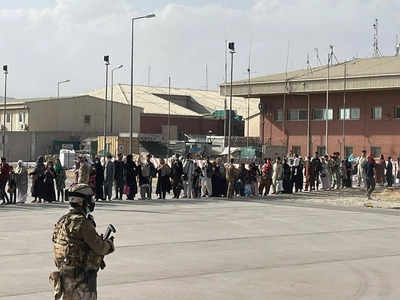
As it treads cautiously on Afghanistan, India will have back-to-back opportunities next month to engage on the evolving situation with Russia and China, two leading players in the war-ravaged country after the departure of the US. While the Brics summit will take place virtually on September 9, Tajikistan will host the SCO summit a week later on September 17.
The Afghanistan security situation is likely to dominate the agenda for the SCO meet and also figure prominently in the Brics virtual meeting where the leaders are expected to express concern over the deteriorating security environment. India sees counter-terrorism as the key focus area for SCO and has used the forum to seek an end to terror-financing.
Government sources said India will use both meetings to underscore its concerns about the use of Afghan territory as a launch pad for terrorist acts in the region. India believes terror groups like Lashkar-e-Taiba and Jaish-e-Mohammed are active in Afghanistan with encouragement from Pakistan.
SCO cooperation is seen as crucial for suppressing the spread of terrorist, separatist and extremism ideologies and also for reinforcing the principles of sovereignty, territorial integrity and non-interference in internal affairs of other countries. India sees engagement with Russia as important for dealing with security challenges emanating from Afghanistan, expecting its views to be given a receptive hearing. The two countries recently agreed to establish a mechanism for addressing the terror and drug threat from Afghanistan.
While Russian special envoy for Afghanistan Zamir Kabulov has been quoted as saying India doesn’t enjoy any influence with the Taliban, Russian foreign minister Sergey Lavrov has said it’s important to bring on board India and Iran in efforts to restore peace in Afghanistan.
While both Russia and China seem keen to work with the Taliban in Afghanistan, the two have also expressed concerns similar to India’s on the issue of terrorism. In a phone conversation last week, Russian President Vladimir Putin and his Chinese counterpart Xi Jinping were reported to have expressed their readiness to step up efforts to combat threats of terrorism and drug trafficking coming from the Afghan territory.
They also spoke of the “importance of establishing peace” in Afghanistan and “preventing the spread of instability to adjacent regions”. However, China’s concerns are related more to the activities of East Turkistan Islamic Movement that is active in Xinjiang. (timesofindia)